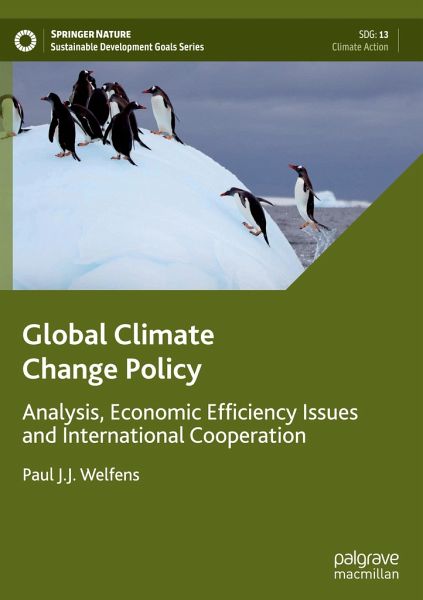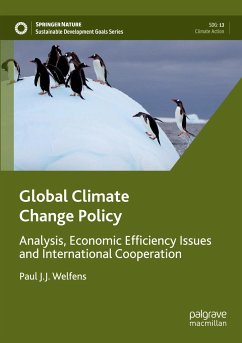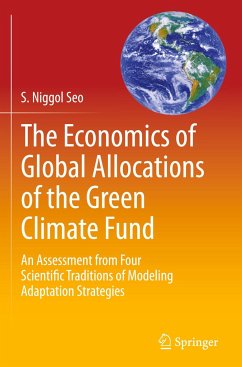
Global Climate Change Policy
Analysis, Economic Efficiency Issues and International Cooperation
Versandkostenfrei!
Versandfertig in 6-10 Tagen
98,99 €
inkl. MwSt.
Weitere Ausgaben:

PAYBACK Punkte
49 °P sammeln!
This book considers climate change from an economic and international policy perspective. It argues that an emissions trading systems (ETS) should first be adopted in all G20 countries with those national ETS then integrated into a global ETS. The topic of global warming is at the forefront of international discussions, especially given recent environmental policy changes in the US under Presidents Trump and Biden and the emergence of the Fridays For Future movement.Combatting climate change does not necessitate a trade-off between economic growth and climate policy provided that the latter is...
This book considers climate change from an economic and international policy perspective. It argues that an emissions trading systems (ETS) should first be adopted in all G20 countries with those national ETS then integrated into a global ETS. The topic of global warming is at the forefront of international discussions, especially given recent environmental policy changes in the US under Presidents Trump and Biden and the emergence of the Fridays For Future movement.
Combatting climate change does not necessitate a trade-off between economic growth and climate policy provided that the latter is consistently linked to new economic policy. Policymakers should support innovation, effective redistribution policies and modern mobility concepts. Moreover, there are crucial links between financial market dynamics and price dynamics in ETS. If measures discussed here are coordinated effectively in the EU/G20, and at the global level, then climate neutrality could be achieved.
Combatting climate change does not necessitate a trade-off between economic growth and climate policy provided that the latter is consistently linked to new economic policy. Policymakers should support innovation, effective redistribution policies and modern mobility concepts. Moreover, there are crucial links between financial market dynamics and price dynamics in ETS. If measures discussed here are coordinated effectively in the EU/G20, and at the global level, then climate neutrality could be achieved.














